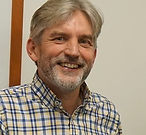THE RUBBLE OR THE DREAM?
- Ian Duncum

- Jan 3, 2018
- 3 min read
Updated: Oct 15, 2018

I have been involved in consulting with churches and coaching church leaders over many years, but recently I have been encouraged by a number of friends to share more widely some of my insights (that I am still learning!) about church revitalisation and associated topics. I invite you to journey with me as I blog on Revitalise, and would love to receive your feedback!
In one church I worked with many years ago, the leaders were so worn out from conflict that I secretly wondered inside whether there was a way forward. These were high capacity, gifted leaders, but we had a large number of significant obstacles to navigate through.
A careful assessment
Some of us can easily slip towards a negative view of circumstances. Others may naively overlook any obstacle before them. Nehemiah was a man who balanced God’s dream with reality. He made a careful inspection of the broken walls of Jerusalem and knew the enormity of rebuilding those walls and of instilling a vision for a different future in people who had grown used to living in the rubble for over a century. Yet the leaders’ response when he shared this vision to rebuild was, “We’re with you. Let’s get started.” (Neh 2.18)
When Nehemiah heard that the wall was still broken down after so long, he wept, mourned, fasted and prayed. The reality of the situation was at odds with God’s dream. Here, at the outset of a New Year, we are presented with two choices in responding to situations in our world, our church and our own lives.
That is the way things are. You can't change them. It's been like that for years. Just accept it. The picture of the exiles in Jerusalem who had stopped work on the walls at the decree from the king. A portrait of a beaten people without hope, afraid, dejected, resigned to the way things are. A picture of a broken people symbolised by the walls of rubble which had remained untouched for as long as 20 years since their last attempt, and which had been broken down for 140 years since the Babylonian invasion of their land.
In contrast we have Nehemiah, looking not at the walls, but at God's Word and God's heart. Looking not as things are, but as things should be. Instead of resignation we see faith, dependence, weeping, mourning, fasting, prayer and action.
We need to make a careful assessment of the situation at two levels. Firstly at a personal level, evaluating our own heart, sense of call and commitment prayerfully before God. This involves counting the cost in length of time and work to effect a turnaround, being willing to read and learn from others about leadership and change, asking whether your heart breaks over the brokenness of those in the community, and being willing to sacrifice your position for the sake of the Great Commission – you would rather perish trying to effect change than keep the status quo. A clear sense of what is God calling you to do, in spite of the obstacles, is also key.
Secondly we need to make a careful assessment at a church level. Is there a genuine desire by the bulk of those in the church to commit to church transformation and impact their community, even when that becomes difficult? Are there those with skills and vision who will join with you to lead this process? Unfortunately there are some churches who are either unwilling or unable to undertake a journey in transformation.
The church I mentioned earlier placed their hope in God, made a full recovery, and impacts their community in significant ways today. We can be aware of the situation (the rubble) and still place our trust in God’s ability to bring new life.
What action will we take as we commence 2018? Maybe its to press forward in prayer to get a clear and compelling vision from God. Or perhaps to reach out for assistance, either from a mentor who has led churches through transformation, or an external consultant to help assess and advise pathways forward. The dream is never defined by the rubble.
Ian Duncum
Dr Ian Duncum has led revitalisation as a pastor, Intentional Interim Pastor and church consultant. He currently consults with churches and is a mentor, trainer, and writer. He can be contacted at https://www.ianduncum.com.au/
© 2018 All rights reserved. Copying and republishing this article on other Web sites, or in any other place, without written permission is prohibited. Photo is of St Colemans Church Schwangau by Ian Duncum © 2016 All rights reserved.









Comments